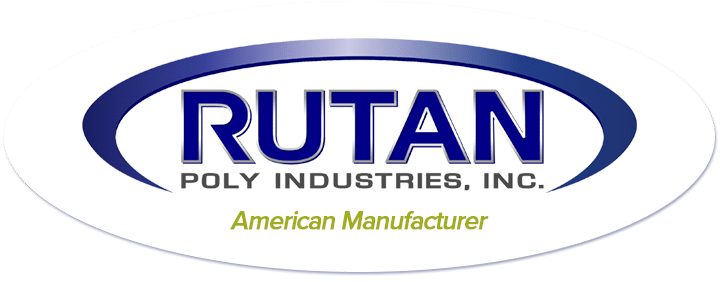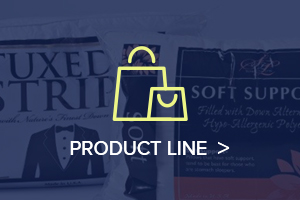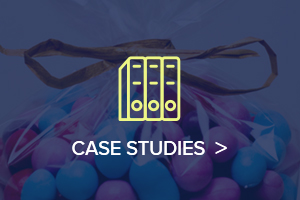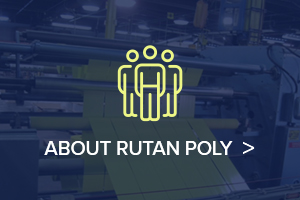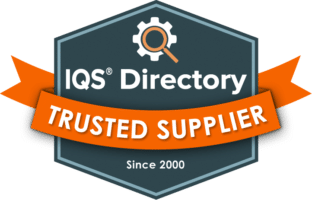Polyethylene (PE) is the most common type of plastic in use today, used mainly for packaging. That’s because PE has excellent water vapor barrier functions, critical for water-sensitive food products, from dry foods to liquids, says Science Direct. There are two main types: LDPE and HDPE, both of which we use in our poly bags and films here at Rutan Poly.
Here we will go over the types of polyethylene, their common applications and how you can customize each option to best suit your needs.
Types of Polyethylene and Common Applications
First off, you have the broad term Polyethylene plastic, or PE for short. This is a very affordable, strong yet lightweight water-resistant type of plastic that is great at withstanding extreme temperatures. As you can imagine, these are desired traits for any packaging product that will contain anything from medications to food.
PE is known for its versatility, durability and moisture-resistance qualities, making it the go-to choice for industrial packaging supplies. There are many types of PE, but the two main ones are HDPE and LDPE.
High Density Polyethylene Plastic (HDPE)
This is a non-porous, non-stretching and affordable material used in the manufacture of plastic bags. Due to its ability to create a vapor and moisture barrier, it’s much sought after in the world of packaging. Its natural state lends it a frosted appearance, resulting in a product that makes a crackle or crinkle sound when manipulated. It’s stronger than its LDPE counterpart (see below) but isn’t as resistant to tears. Commonly used in applications where a thin cost-effective bag is necessary, this classic high density application is perfect for liner bags, for example, where it’s not required to have a high tear resistance quality.
A thermoplastic polymer made out of petroleum, HDPE is one of the most versatile plastic materials available, used in several different applications, such as plastic bottles, shampoo bottles, milk jugs, bleach bottles, piping, specialty bags, garbage bags, shopping bags, medical grade bags, and cutting boards. More features of this material include:
- Lightweight
- Very strong
- Impact resistant
- Long lasting
- Weather resistant
- Resists mold, mildew, rotting, and insects
- Easily molded into any shape, with high malleability qualities
Low Density Polyethylene Plastic (LDPE)
The most commonly used material in plastic bags, LDPE is well known for its strong, porous, stretchable nature, with excellent clarity and high tear resistance. This type of plastic bag is easy to print on, and ideal for packaging products without sharp points. Think: heavy duty garbage bags, boutique retail carry bags, general purpose containers, compost and mulch bags, mail bags, and press seal bags.
Other features of LDPE include:
- Low temperature flexibility
- Toughness
- Corrosion resistance
- Relative transparency
In general, this type of plastic is not well suited for applications where high temperature resistance, stiffness, and structural strength are required. It is, however, good for producing shipping envelopes, garbage can liners, paneling, floor tile, furniture, film, compost bins, trash cans, outdoor lumber and landscape timber.
Customizing Options
Many times, customers wish to create a packaging product that suits their unique needs. They can do so with either type of plastic, from films to bags. Here are a few of the ways in which you can customize your products:
Films
- Bundling films
- Center slit
- Centerfold films
- Single and double wound sheeting
- Gusseted
- Poly tubing
- Printed rollstock
Poly Bags
- Bottom seal bags
- Coreless bags
- Header poly bags
- Poly bags with lip
- Specialty bags (compost and mulch, FDA-approved bags, mailer bags, pinhole bags, printed poly bags)
- Side gusset
- Side weld bags
- Water tight seal bags
- Zipper style bags
Contact Rutan Poly Industries
To learn more about HDPE and LDPE and the types of plastic bags that would be best for your needs, contact us in NJ toll free at 800-872-1474.
